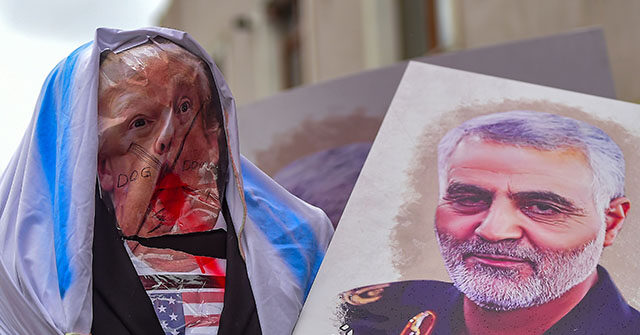The Iranian rial has experienced a significant decline in value, reaching an all-time low after Donald Trump secured reelection as President of the United States. This turmoil is indicative of the Iranian regime’s anxiety about US foreign policy under Trump, particularly punctuated by the actions of the Islamic Revolutionary Guard Corps (IRGC), which has been labeled a terrorist organization by the US. In response to Trump’s reelection, the IRGC released a threatening video vowing to assassinate him, explicitly aiming to avenge the death of General Qassem Soleimani. Soleimani, a high-ranking figure within the IRGC, was killed in a US airstrike ordered by Trump in January 2020. The Iranian regime has positioned Soleimani as a martyr and has urged the public to celebrate him, though there is evident discontent among some Iranian citizens regarding this national narrative.
The IRGC’s video, shared via Telegram, included references to previous threats against Trump and featured clips invoking Soleimani’s rhetoric. It underscores the IRGC’s continued commitment to retaliate against the US and its interests. This ominous messaging is not new; the Iranian leadership has been vocal about targeting US officials connected to Soleimani’s assassination, with former leaders and current officials reiterating calls for revenge. In legal maneuvers, an Iranian court has even demanded $50 billion in damages from the US, further illustrating the regime’s antagonistic posture towards America. The US intelligence community has recognized the seriousness of these threats, and President Biden has warned Iran against any aggressive actions.
As the rial reached a historic low of 703,000 per dollar, concerns escalated among Iranian citizens regarding the potential for renewed US sanctions under a Trump administration. During Trump’s presidency, Iran faced stringent economic sanctions that severely impacted its economy, particularly in contrast to the relative calm experienced during the earlier Obama administration, which facilitated the Iran nuclear deal that had the rial trading at a much more favorable 32,000 to the dollar. Following Trump’s victory, there are fears that he will reinstate these sanctions, particularly as President Biden had previously been more lenient with waivers. Opinions among Iranians are divided; while some fear the economic collapse intensified sanctions might bring, others express a sliver of hope that such pressure could lead to the end of the current oppressive regime.
In a climate of apprehension, Iranian citizens have exhibited mixed feelings toward Trump’s reelection. Interviews with everyday people reveal starkly contrasting views: some equate Trump with evil, while others suggest pragmatic engagement with him might yield better outcomes for Iran. This dichotomy reflects a society grappling with a desire for political change and an economy in freefall. The newly elected President Masoud Pezeshkian, perceived as a reformer, faces significant challenges. Although he campaigned on improving relations with the West, his rhetoric has become increasingly confrontational as tensions with Israel have escalated. The regime is thus caught in a precarious position, with Pezeshkian’s promise for engagement clashing with the underlying urgency for self-preservation against external pressures.
Analysts portray a bleak outlook for the Iranian regime in the wake of Trump’s return to power. The resurgence of strict economic sanctions looms large, which would exacerbate existing challenges for the current leadership, already under strain from internal dissent and economic distress. The IRGC and the ruling clerics are deeply aware that a return to Trump’s “maximum pressure” approach poses a severe threat. As political turmoil grows in the region and Israel continues successful military operations against Iranian interests, the IRGC seems to be preparing for a tumultuous cycle of predatory behavior.
Moreover, there are concerns that Iran might accelerate its nuclear program as a response to anticipated US policy shifts. With the impending end of Biden’s administration and the possible reinstatement of Trump, the regime may seek to solidify its nuclear capabilities to deter American power. Analysts suggest this period of transition is critical as the IRGC looks to enhance its nuclear weapons program before Trump assumes office again. The trajectory of Iran’s international relations and domestic stability remains uncertain, and as a result, the coming months may see escalated tensions both within Iran and with Western powers, particularly the United States and its allies.

